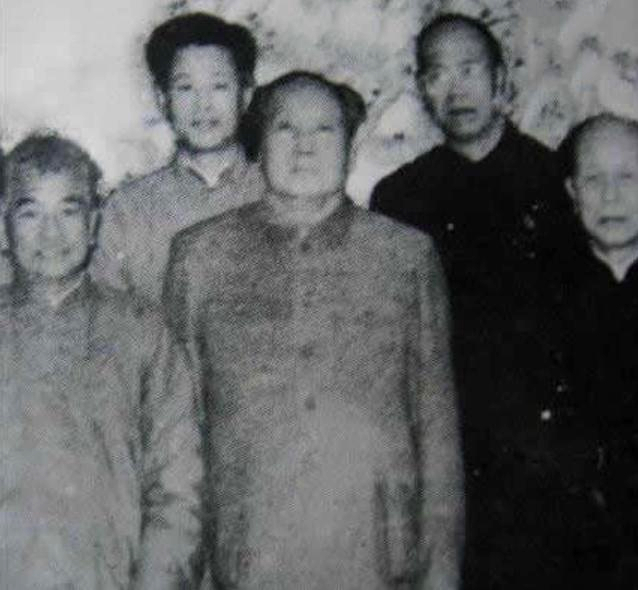|
Strengthening Nation Forum
The Strengthening Nation Forum () is a Chinese bulletin board on the website of the ''People's Daily'', an official newspaper of the Chinese Communist Party. The purpose of the forum is for discussion on how to make China a stronger nation. The forum is somewhat remarkable being sponsored by an organ of the Chinese Communist Party yet having a relatively open amount of uninhibited discussion including sometimes extremely strong criticism of the People's Republic of China government. Scholars of the Chinese internet such as Peng Lan, argue that its creation to mobilize internet resistance to the United States bombing of the Chinese embassy in Belgrade, bombing of the Chinese embassy in Belgrade was a landmark moment in Chinese internet history, and the forum has been cited as being important in the development of online Chinese nationalism. With politically sensitive issues such as the July 1, 2003 demonstrations in Hong Kong against Hong Kong Basic Law Article 23, the amount of c ... [...More Info...] [...Related Items...] OR: [Wikipedia] [Google] [Baidu] |
Bulletin Board
A bulletin board (pinboard, pin board, noticeboard, or notice board in British English) is a surface intended for the posting of public messages, for example, to advertise items wanted or for sale, announce events, or provide information. Bulletin boards are often made of a material such as cork to facilitate addition and removal of messages, as well as a writing surface such as blackboard or whiteboard. A bulletin board which combines a pinboard (corkboard) and writing surface is known as a combination bulletin board. Bulletin boards can also be entirely in the digital domain and placed on computer networks so people can leave and erase messages for other people to read and see, as in a bulletin board system. Bulletin boards are particularly prevalent at universities. They are used by many sports groups and extracurricular groups and anything from local shops to official notices. Dormitory corridors, well-trafficked hallways, lobbies, and freestanding kiosks often have c ... [...More Info...] [...Related Items...] OR: [Wikipedia] [Google] [Baidu] |
Hong Kong Basic Law Article 23
Hong Kong Basic Law Article 23 () is an article in the Basic Law, the constitution of Hong Kong. It states that Hong Kong "shall enact laws on its own to prohibit any act of treason, secession, sedition, subversion against the Central People's Government, or theft of state secrets, to prohibit foreign political organizations or bodies from conducting political activities in the Region, and to prohibit political organizations or bodies of the Region from establishing ties with foreign political organizations or bodies." Attempts to implement the article and create the Hong Kong national security law have seen protests, particularly in 2003 and 2019. In 2020, the mainland National People's Congress imposed a security law on Hong Kong under Article 18 of the Basic Law. Content Article 23 of the Basic Law (BL 23) states: Background Article 23 had undergone significant revisions before the promulgation of its current form on 4 April 1990. The 1987 version of art.23 (Articl ... [...More Info...] [...Related Items...] OR: [Wikipedia] [Google] [Baidu] |
Communications In China
The People's Republic of China possesses a diversified communications system that links all parts of the country by Internet, telephone, telegraph, radio, and television. The country is served by an extensive system of automatic telephone exchanges connected by modern networks of fiber-optic cable, coaxial cable, microwave radio relay, and a domestic satellite system; cellular telephone service is widely available, expanding rapidly, and includes roaming service to foreign countries. Fiber to the x infrastructure has been expanded rapidly in recent years. History When the People's Republic was founded in 1949, the telecommunication systems and facilities in China first established by the Qing and Republican ITA and Ministry of Posts and Communications had been seriously damaged from over thirty years of on and off war between warlords, Japan, and the two sides of the Chinese Civil War. What little remained was largely outdated and rudimentary and limited to the eastern coastal c ... [...More Info...] [...Related Items...] OR: [Wikipedia] [Google] [Baidu] |
Media In China
The mass media in China consists primarily of television, newspapers, radio, and magazines. Since the start of the 21st century, the Internet has also emerged as an important form of communication by media, and is under the direct supervision and control of the Chinese government and ruling Chinese Communist Party. Since the founding of the People's Republic of China in 1949 and until the 1980s, almost all media outlets in Mainland China were state-run. Privately-owned media outlets only began to emerge at the onset of economic reforms, although state media outlets such as Xinhua News Agency, China Central Television (CCTV), and the official newspaper of the Central Committee of the Chinese Communist Party, '' People's Daily,'' continue to hold significant market share. Non-governmental media outlets that are allowed to operate within the PRC (excluding Hong Kong and Macau, which have separate media regulatory bodies) are no longer required to strictly follow every journ ... [...More Info...] [...Related Items...] OR: [Wikipedia] [Google] [Baidu] |
Global Times
The ''Global Times'' () is a daily tabloid newspaper under the auspices of the Chinese Communist Party's flagship newspaper, the '' People's Daily'', commenting on international issues from a Chinese ultra-nationalistic perspective. The publication is sometimes called "China's Fox News" for its propagandistic slant and the monetization of nationalism. Established as a publication in 1993, its English version was launched in 2009. The editor-in-chief of ''Global Times'' was Hu Xijin until December 2021, who has been described as an early adopter of the " wolf warrior" communication strategy of loudly denouncing perceived criticism of the Chinese government and its policies. The newspaper has been the source of various incidents, including fabrications, conspiracy theories, and disinformation. It is part of a broader set of Chinese state media outlets that constitute the Chinese government's propaganda apparatus. History Established as a Chinese-language weekly publicat ... [...More Info...] [...Related Items...] OR: [Wikipedia] [Google] [Baidu] |
Internet In The People's Republic Of China
China has been on the internet intermittently since May 1989 and on a permanent basis since 20 April 1994, although with limited access. In 2008, China became the country with the largest population on the Internet and, , has remained so. As of July 2016, 730,723,960 people (53.2% of the country's total population) were internet users. China's first foray into global cyberspace was an email (not TCP/IP based and thus technically not internet) sent on 20 September 1987 to Karlsruhe Institute of Technology. It said "Across the Great Wall, we can reach every corner in the world" (). This later became a well-known phrase in China and , was displayed on the desktop login screen for QQ mail. History By the end of 2009, the number of Chinese domestic websites grew to 3.23 million, with an annual increase rate of 12.3%, according to the Ministry of Industry and Information Technology. As of first half of 2010, the majority of the Web content is user-generated. As of June 2011, C ... [...More Info...] [...Related Items...] OR: [Wikipedia] [Google] [Baidu] |
Forum Moderator
An Internet forum, or message board, is an online discussion site where people can hold conversations in the form of posted messages. They differ from chat rooms in that messages are often longer than one line of text, and are at least temporarily archived. Also, depending on the access level of a user or the forum set-up, a posted message might need to be approved by a moderator before it becomes publicly visible. Forums have a specific set of jargon associated with them; example: a single conversation is called a " thread", or ''topic''. A discussion forum is hierarchical or tree-like in structure: a forum can contain a number of subforums, each of which may have several topics. Within a forum's topic, each new discussion started is called a thread and can be replied to by as many people as so wish. Depending on the forum's settings, users can be anonymous or have to register with the forum and then subsequently log in to post messages. On most forums, users do not have to l ... [...More Info...] [...Related Items...] OR: [Wikipedia] [Google] [Baidu] |
Zhao Ziyang
Zhao Ziyang ( zh, 赵紫阳; pronounced , 17 October 1919 – 17 January 2005) was a Chinese politician. He was the third premier of the People's Republic of China from 1980 to 1987, vice chairman of the Chinese Communist Party (CCP) from 1981 to 1982, and CCP general secretary from 1987 to 1989. He was in charge of the political reforms in China from 1986, but lost power in connection with the reformative neoauthoritarianism current and his support of the 1989 Tiananmen Square protests. Zhao joined the Chinese Communist Party (CCP) in February 1938. During the Second Sino-Japanese War, he served as the chief officer of CCP Hua County Committee, Director of the Organization Department of the CCP Yubei prefecture Party Committee, Secretary of the CCP Hebei-Shandong-Henan Border Region Prefecture Party Committee and Political Commissar of the 4th Military Division of the Hebei-Shandong-Henan Military Region. During the Chinese Civil War of 1945-1949, Zhao served as the Deputy ... [...More Info...] [...Related Items...] OR: [Wikipedia] [Google] [Baidu] |
Hong Kong
Hong Kong ( (US) or (UK); , ), officially the Hong Kong Special Administrative Region of the People's Republic of China (abbr. Hong Kong SAR or HKSAR), is a city and special administrative region of China on the eastern Pearl River Delta in South China. With 7.5 million residents of various nationalities in a territory, Hong Kong is one of the most densely populated places in the world. Hong Kong is also a major global financial centre and one of the most developed cities in the world. Hong Kong was established as a colony of the British Empire after the Qing Empire ceded Hong Kong Island from Xin'an County at the end of the First Opium War in 1841 then again in 1842.. The colony expanded to the Kowloon Peninsula in 1860 after the Second Opium War and was further extended when Britain obtained a 99-year lease of the New Territories in 1898... British Hong Kong was occupied by Imperial Japan from 1941 to 1945 during World War II; British administration resumed after th ... [...More Info...] [...Related Items...] OR: [Wikipedia] [Google] [Baidu] |
Website
A website (also written as a web site) is a collection of web pages and related content that is identified by a common domain name and published on at least one web server. Examples of notable websites are Google, Facebook, Amazon, and Wikipedia. All publicly accessible websites collectively constitute the World Wide Web. There are also private websites that can only be accessed on a private network, such as a company's internal website for its employees. Websites are typically dedicated to a particular topic or purpose, such as news, education, commerce, entertainment or social networking. Hyperlinking between web pages guides the navigation of the site, which often starts with a home page. Users can access websites on a range of devices, including desktops, laptops, tablets, and smartphones. The app used on these devices is called a Web browser. History The World Wide Web (WWW) was created in 1989 by the British CERN computer scientist Tim Berners-Lee ... [...More Info...] [...Related Items...] OR: [Wikipedia] [Google] [Baidu] |
United States Bombing Of The Chinese Embassy In Belgrade
On May 7, 1999, during the NATO bombing of Yugoslavia (Operation Allied Force), five U.S. Joint Direct Attack Munition guided bombs hit the People's Republic of China embassy in the Belgrade district of New Belgrade, killing three Chinese state media journalists and outraging the Chinese public. According to the U.S. government, the intention had been to bomb the nearby Yugoslav Federal Directorate for Supply and Procurement (FDSP). President Bill Clinton apologized for the bombing, stating it was an accident. Central Intelligence Agency (CIA) Director George Tenet testified before a congressional committee that the bombing was the only one in the campaign organized and directed by his agency, and that the CIA had identified the wrong coordinates for a Yugoslav military target on the same street. The Chinese government issued a statement on the day of the bombing, stating that it was a "barbarian act". In October 1999, five months after the bombing, ''The Observer''Note that th ... [...More Info...] [...Related Items...] OR: [Wikipedia] [Google] [Baidu] |
People's Republic Of China
China, officially the People's Republic of China (PRC), is a country in East Asia. It is the world's most populous country, with a population exceeding 1.4 billion, slightly ahead of India. China spans the equivalent of five time zones and borders fourteen countries by land, the most of any country in the world, tied with Russia. Covering an area of approximately , it is the world's third largest country by total land area. The country consists of 22 provinces, five autonomous regions, four municipalities, and two Special Administrative Regions (Hong Kong and Macau). The national capital is Beijing, and the most populous city and financial center is Shanghai. Modern Chinese trace their origins to a cradle of civilization in the fertile basin of the Yellow River in the North China Plain. The semi-legendary Xia dynasty in the 21st century BCE and the well-attested Shang and Zhou dynasties developed a bureaucratic political system to serve hereditary monarchies, o ... [...More Info...] [...Related Items...] OR: [Wikipedia] [Google] [Baidu] |







